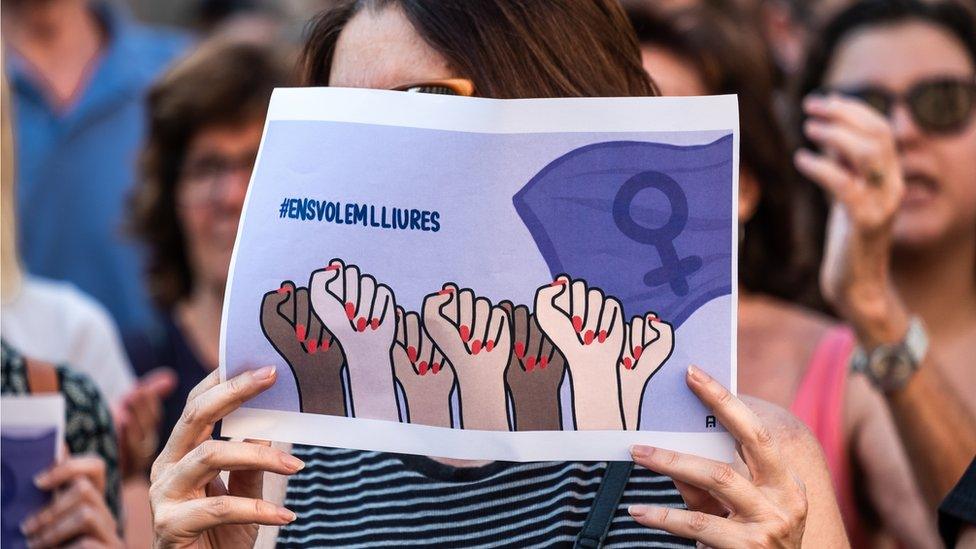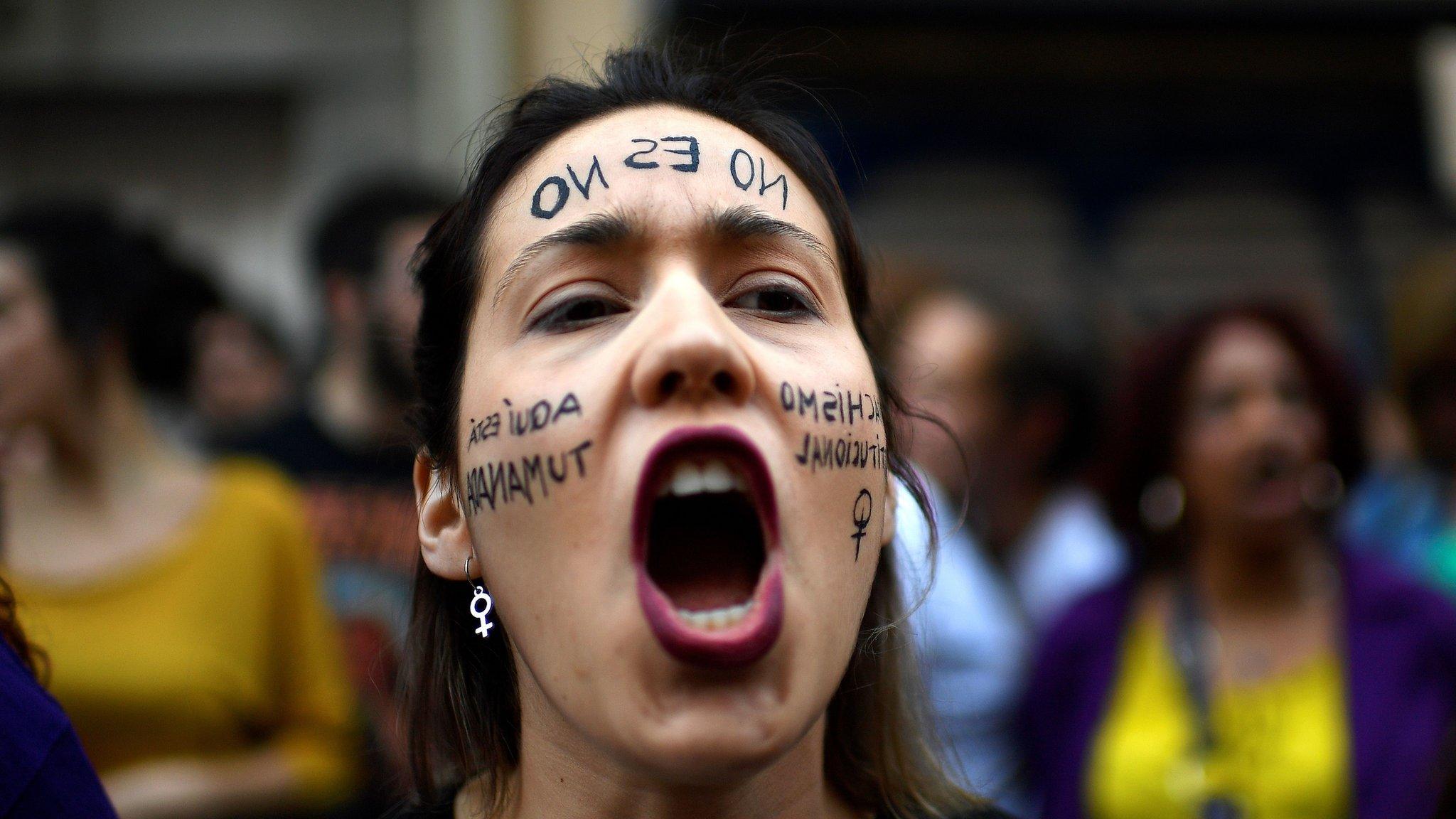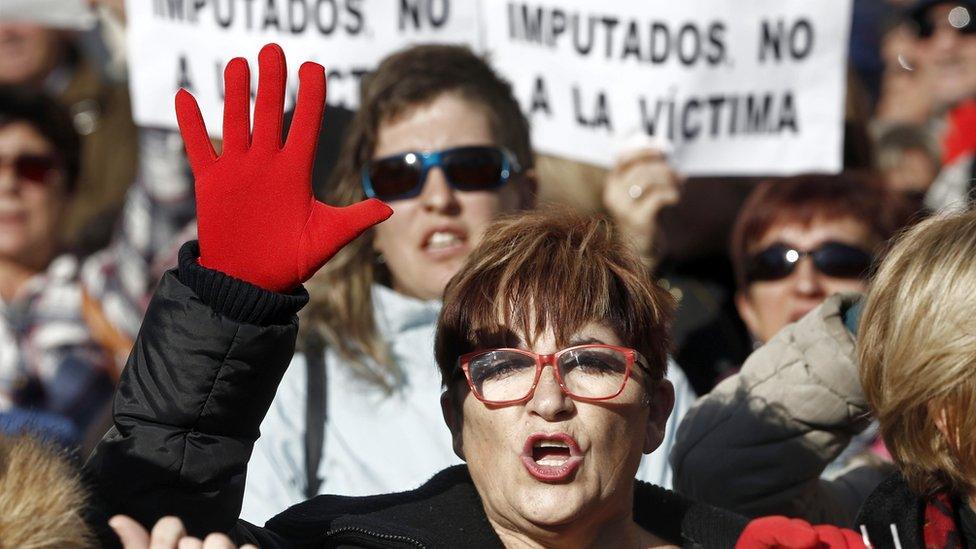Spain rape law: Outcry as court rules attack not violent
- Published

After the "wolf pack" trial, demonstrations spread across Spain - this sign reads: "We want to be free"
A court's decision to clear two men of rape despite the victim begging them to stop has prompted outrage in Spain.
The court in Lleida in north-eastern Spain jailed the uncle and nephew for four-and-a-half years for sexual abuse, rather than the graver offence.
A similar verdict in a gang rape case this year prompted large demonstrations against "patriarchal" justice.
Five men were cleared of raping a teenage woman during the San Fermín bull-running festival in Pamplona.
Sexual assault charge ruled out
In the latest verdict, the court ruled that the two men had not committed a sexual assault, the equivalent to rape in Spain, because they were deemed not to have used intimidation or violence.
The uncle and nephew had met their victim in a bar and gone with her to a nightclub. The men then took her to a backstreet where she was forced into sex and a separate sexual act without her consent.
She had pleaded with the men to stop, and cried and vomited afterwards.
The two men "took advantage of her vulnerable nature, which, added to her consumption of alcohol and antidepressants, may have weakened her ability to defend herself, thus making the use of violent or intimidatory acts unnecessary", the ruling said.
And yet it added that, without intimidation or violence, the crime of sexual assault, which commands a jail term of up to 15 years, could not be applied.
Anti-violence protests
There was indignation online, with thousands sharing their anger at the decision.
One Twitter user Mercedes Domènech described the court ruling as a scandal. "If you don't defend yourself, it's not rape. If you do, they kill you."
The verdict comes as feminists around Spain prepare for a series of 200 demonstrations over the weekend to mark the UN International Day for the Elimination of Violence against Women on 25 November.
The "wolf pack" verdict was met with anger outside court
Mass protests spread across Spain in April when a court in Pamplona ruled that the five men who used a WhatsApp chat group called "the wolf pack" had not used intimidation or violence against their victim during the 2016 San Fermín festival.
The five dragged an 18 year old into an alcove at the back of a block of flats and filmed their attack with their mobile phones.
The victim said in the trial that she froze, and the judges who saw the videos described her attitude as "passive or neutral".
Laws and judges under scrutiny
The three judges in that case were involved in another controversial ruling this week, acquitting a man of attempted murder after he threatened his estranged wife with a kitchen knife and throttled her on the floor in front of their children.
The woman survived and her husband was sentenced to 10 months in prison for domestic abuse, although even his defence lawyers reportedly asked for a two-year jail term for actual bodily harm.
After the "wolf pack" ruling, Spain's government asked a group of legal experts to revise the sexual assault laws, with a view to unifying the different offences under the umbrella term rape.
Amnesty International released a report on Thursday criticising the absence of policies in Spain to help women who suffer from sexual violence, and pointing to a legal system that discourages victims from coming forward.
- Published26 April 2018

- Published28 November 2017
